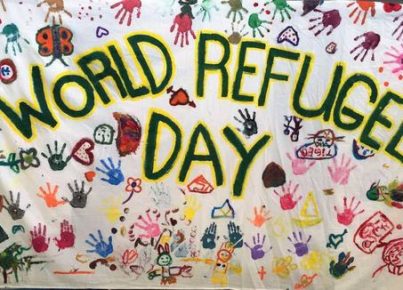Culture Day, celebrated in many places around the world, is a day dedicated to honoring and showcasing the richness of various cultural backgrounds. While the idea of embracing culture and diversity is undeniably beneficial, there are certain aspects that Culture Day may inadvertently get wrong. In this article, we will explore some of these shortcomings and discuss ways in which we can address them to make Culture Day a more inclusive and meaningful event for everyone.
1. Stereotyping and Simplifying Cultures
One of the primary issues with Culture Day is that it often reduces complex cultures to a handful of stereotypical elements. Food, clothing, dance, and music are commonly shared aspects during these celebrations. However, when we only focus on these superficial features, we risk perpetuating stereotypes and overlooking the deeper aspects of other cultures.
To overcome this issue, organizers of Culture Day events should include panel discussions or workshops that delve into the customs, history, and values of various cultures. By doing so, participants can gain a better understanding and appreciation for the intricate aspects that define each unique culture.
2. Cultural Appropriation vs. Cultural Appreciation
Culture Day can inadvertently lead to instances of cultural appropriation – when elements of one culture are adopted by members of another without understanding or respecting their significance. Participants should be encouraged to develop genuine connections with people from diverse cultural backgrounds and educate themselves about specific practices before engaging in activities or wearing clothing associated with that culture.
3. Tokenism and Lack of Representation
While Culture Day seeks to celebrate diversity, it often falls short in providing equal representation for all cultures. Smaller or lesser-known communities may be overlooked as larger or more popular groups dominate the stage. This lack of representation can lead to tokenism – where one person or aspect is used to represent an entire culture.
Event organizers should strive for greater inclusivity by allocating resources equitably among all participating groups. This includes providing equal time in performances, panel discussions, and other presentations.
4. Exclusion of Intersectional Identities
Culture Day events may inadvertently exclude people who identify as members of more than one cultural group. Intersectional identities, such as biracial, multicultural, or LGBTQ+ individuals, should not be left out of the celebrations. Events should aim to encompass all the rich complexities of culture and identity and seek to acknowledge these intersectional experiences.
5. Misuse of sacred items or cultural stereotypes for entertainment
Sacred items or symbols from other cultures should not be brought out solely for entertainment purposes during Culture Day events. Using religious or historical relics as props can trivialize their meaning and offend people who hold these items in high esteem.
In conclusion, while Culture Day has good intentions and seeks to promote a better understanding and appreciation of diverse cultures, it is essential to recognize the potential pitfalls in its execution. Ensuring inclusivity, representation, and active engagement with the deeper aspects of culture will make the event a more meaningful experience for all involved.


